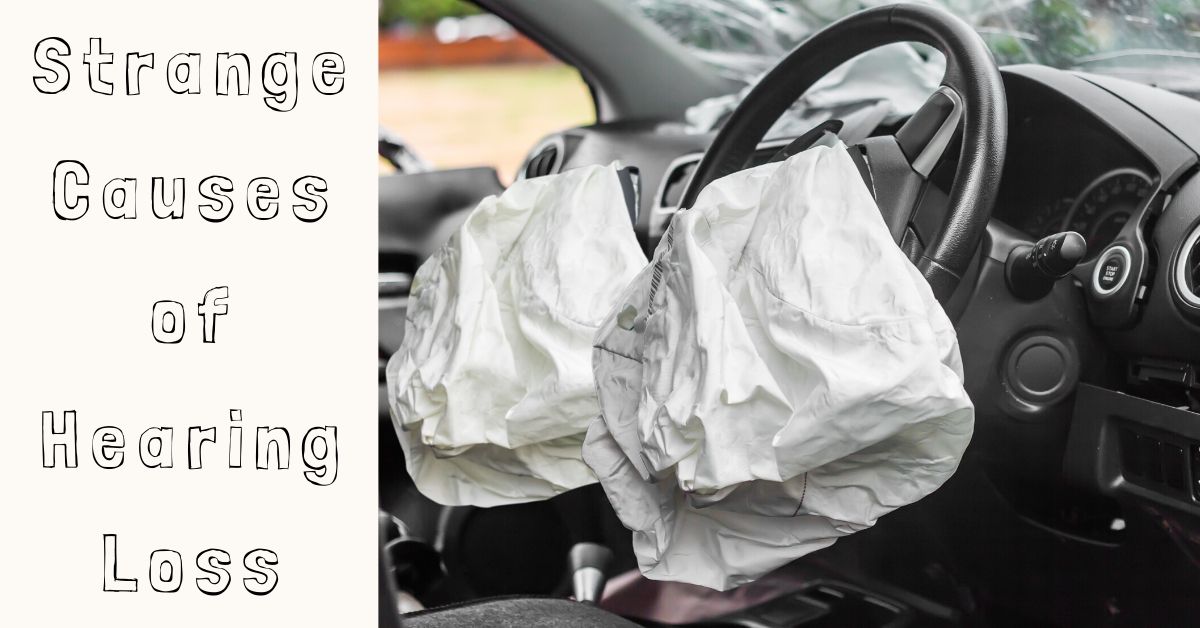
When we talk to people about hearing loss, we often discuss noise-related and age-related hearing damage, the most common causes of permanent hearing loss. Hearing loss can be brought on by many other factors – from impacted earwax to diabetes to head injuries. Here are a few unexpected sources of potential hearing loss:
Shingles
Shingles is a painful reactivation of the chickenpox (herpes zoster) virus in adults. Shingles usually manifests as a rash or blisters on the skin. In most cases, a shingles rash develops on the trunk of the body, but in cases where it is active on or near the face, hearing loss linked to Ramsay Hunt syndrome can occur. Ramsay Hunt syndrome is caused by shingles near the facial nerves around your ear. The syndrome causes hearing loss as well as facial paralysis. With rapid treatment, the syndrome can resolve itself, but if left unaddressed it can result in lasting nerve and hearing damage.
Anemia
Your hearing relies on the functioning of tiny hair-like cells in the inner ear to pick up sound waves in the atmosphere. Damage to these delicate sensors is one of the most common ways that permanent hearing loss develops. How these cells are damaged most often occurs through exposure to loud noises or natural aging, but other health factors can come into play.
Anemia’s link to hearing loss can be seen as an example. Weak blood flow and not enough oxygen carried in the blood can starve the tiny blood vessels and hard working sensory cells of the inner ear. While many cells can rebuild or replace themselves after being, once these cells are damaged they cannot be rejuvenated and cause permanent hearing damage.
Air Bags
The lifesaving job that airbags perform is undeniable, but a little known consequence of their deployment is the hearing loss they cause in many passengers. In a collision or accident, airbags release with an incredible amount of force -and an accompanying noise level that can immediately cause permanent hearing loss. Over 15% of accident survivors report hearing loss associated with airbags. Of course, airbags do much more good than harm, but if you have recently been in a vehicle where airbags went off, it is a good idea to schedule a hearing exam.
Aspirin
High doses of aspirin – eight or more tablets daily – can have the adverse side effect of damaging your hearing. Aspirin and many other drugs including some antibiotics and some antidepressants demonstrate properties we call “ototoxic” – they can damage your hearing when used. Even common drugs like quinine and ibuprofen have shown ototoxic side effects.
If you are concerned about ototoxic side effects of drugs you currently take, consult with your doctor and your hearing specialist. Don’t change your prescribed medication routine and dosing without talking with your doctor first. In some cases, suitable alternatives without ototoxic side effects can be prescribed, while in other cases you will need to stay on your current medication.
If you need to stay on ototoxic medication, your hearing specialist can help you manage your hearing health.
Smoking
It probably comes as no surprise that smoking is hazardous to your health, but many people don’t realize that being a smoker can damage their hearing. Cigarette smoke includes toxins like formaldehyde and arsenic which have been shown to cause lasting harm to the inner and middle ear. How much harm? Smokers have a 70% higher risk of developing significant hearing loss, one of the many reasons quitting a smoking habit can improve your health.
Chemotherapy
Like airbags, chemotherapy is a lifesaver. In the battle against many forms of cancer, refined chemotherapy regimens are the best line of defense, sending the disease into remission and adding years to people’s lives. The intensity of chemotherapy drugs does come at a cost to other aspects of a person’s health, often including their hearing.
In the case of chemotherapy, the presence of the heavy metal platinum in many of the drugs used makes them ototoxic and is highly linked to hearing damage. Over 60% of cancer patients treated with platinum-based medication had resulting hearing loss. Those experiencing hearing loss while undergoing chemotherapy can talk with their hearing specialist about managing hearing loss during and after the course of treatment.
